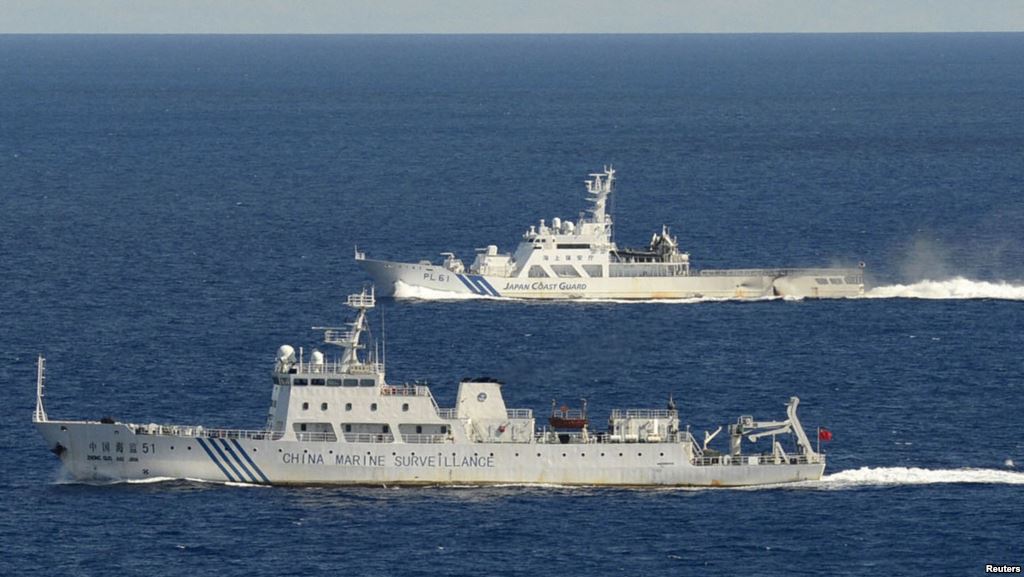Fashioning a moderately cooperative relationship between the US and China – the two great powers in the international system today – has occupied many minds. International relations specialists continue to be haunted by ‘power transition’ thesis. According to this hypothesis, when a rising power challenges the leading status quo power, competition and often conflict follows. Indeed historical examinations over the last century and a bit suggest that when these conditions prevail, with the most notable exception of the US and Great Britain in the late nineteenth century, these changes in the power distribution among the great powers lead to competition, rivalry and conflict. It certainly underscores the long standing effort by the Harvard Study Group – the group I have been involved with for a number of years – and many other bilateral US-China efforts to focus their attentions on the changing dynamic of the US-China relationship. As Beida’s Yiping Huang has written recently:
But times have changed. Today, although the US is still the world’s largest economy, China is already the second-largest and is set to overtake the US with
in the next 10 years. It is, therefore, reasonable for China and other developing countries to want to be part of the new rule-making process. But a transition of global superpowers could make all parties very nervous, as in history it often ended in war. This makes China–US cooperation all the more important, not only to avoid major confrontation but also to build a better world (January 19, 2014 EastAsiaForum.com).
Determining how to structure the relationship and devise a strategy- and tactics – that avoid conflict between these two great powers is one of the, if not the, key strategic question facing international relations today. Experts from both countries have expended much effort in seeking an appropriate framework the enhances collaboration and brings stability and international peace to world politics, or at least in East Asia.
Henry Kissinger back in 2011 in his magisterial work On China sought what he called co-evolution. Kissinger like many other US experts has insisted that a cooperative relationship must be found:
Arguing that a cooperative United States-China relationship is “essential to global stability and peace,” Mr. Kissinger warns that were a cold war to develop between the countries, it “would arrest progress for a generation on both sides of the Pacific” and “spread disputes into internal politics of every region at a time when global issues such as nuclear proliferation, the environment, energy security and climate change impose global cooperation. (NYT Book Review May 9, 2011 by Michiko Kakutani)
But the Kissinger solution – co-evolution – is more than slightly odd especially in the context of deep interdependence and globalization that marks contemporary international relations:
The appropriate label for the Sino-American relationship is less partnership than “co-evolution”. It means that both countries pursue their domestic imperatives, cooperating where possible, and adjust their relations to minimize conflict. Neither side endorses all the aims of the other or presumes a total identity of interests, but both sides seek to identify and develop complementary interests. (Kissinger at p. 526)
But if questions arise with the Kissinger strategy, there is more than a dollop of dismay reserved for a recent article from the magazine version of Foreign Policy . Elbridge Colby and Ely Ratner both of the Center for a New American Security, one of the many inside the beltway think-tanks, have written a piece “Roiling the Waters” in the January/February edition. The bottom line, or lines, and conclusions of this piece are:
- China’s actions in the South and East China Seas amount to an expansionist strategy;
- That the US foreign policy effort overemphasizes stability and can be dangerous. The US policy makes the risk of escalation too low for China;
- A long discussion of the US-Soviet Cuban missile crisis that they conclude, “has demonstrated the perils of focusing too much on stability at the expense of deterrence”;
- The obligatory statement that this not 1962 and China is not the Soviet Union;
- “… it will be far better if the leadership in Beijing has the clear sense that the United States will meet each challenge to its and its allies’ interests resolutely”;
- “Taking a cue from history, the United States needs to inject a healthy degree of risk into Beijing’s calculus, even as it searches for ways to cooperate with China.”;
- “China must understand that attempts to roil the waters could result in precisely the kinds of costs and conflicts it seeks to avoid.”;
- “Beyond the sea [East and South China Seas], the United States must demonstrate a willingness to push back militarily when China attempts to coerce America’s allies and partners. To do this, the US military needs capabilities and plans that not only prepare it for major war, but also offer plausible, concrete options for responding to Chinese attempts to exploit America’s perceived aversion to instability “; and
- “Critics might assert that taking these steps will invite precisely the kind of Cold War-like competition that will make conflict, if not outright war, most likely. This is a real possibility, and US policy makers will have to carefully balance deterrence with engagement. But those who are reluctant to push back need to ask themselves whether China’s top leaders currently see a sufficient downside in acting assertively. Clearly they do not.”
This is reckless analysis. It is drawn without evidence. Few who examine the US-China relationship ignore the more aggressive behaviors – whether China’s in the East and South China Seas or US policy with its recent pivot. The clarion call for more US alliances – with Japan for certain but others as well – without any regard for the difficulty of restraining some of the alliance behaviors – is tactically if not strategically ill considered.
Image Credit: voanews.com


